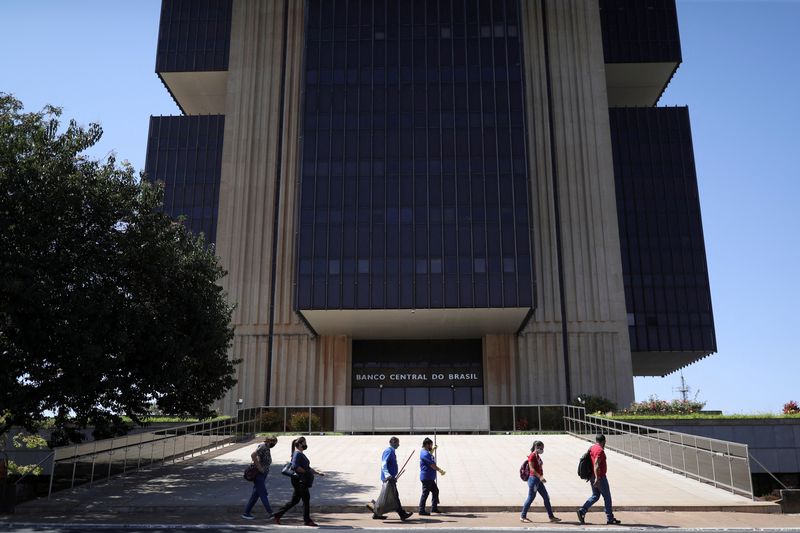BRASILIA (Reuters) -Brazil’s central bank improved on Thursday its projection for 2022 GDP due to a methodological revision that implied a better first-half result, but kept the perspective of a slowdown for 2023 on the back of its aggressive monetary tightening.
In its quarterly inflation report, the central bank now sees the gross domestic product (GDP) expanding by 2.9% this year from 2.7% seen in September, while its growth estimate for next year was maintained at 1.0%.
“The current projections reflect the perspective that the deceleration of economic activity will consolidate in the fourth quarter this year and throughout 2023, influenced by the expected global slowdown and the cumulative impacts of domestic monetary policy,” said the report.
Private economists polled by the central bank in a weekly survey forecast a GDP rise of 3.05% this year and 0.75% in 2023.
Regarding monetary policy, policymakers again stressed they would remain vigilant to see if holding the country’s benchmark interest rate at 13.75% for “a sufficiently long period” would be enough to ensure the convergence of inflation.
Otherwise policymakers say hikes could be resumed. The central bank paused its aggressive tightening in September after 12 consecutive increases that lifted rates from a 2% record low in March 2021 to battle inflation.
In its latest communications, the central bank has highlighted the inflationary risks arising from the multi-billion spending package of leftist-President elect Luiz Inacio Lula da Silva to meet campaigning promises, which has already been approved in the Senate but has yet to be voted on in the lower house.
Policymakers said in the report that they would “pay particular attention to future developments in fiscal policy and, in particular, their effects on asset prices and inflation expectations, with potential impacts on the dynamics of prospective inflation.”
(Reporting by Marcela Ayres; Editing by Steven Grattan)
